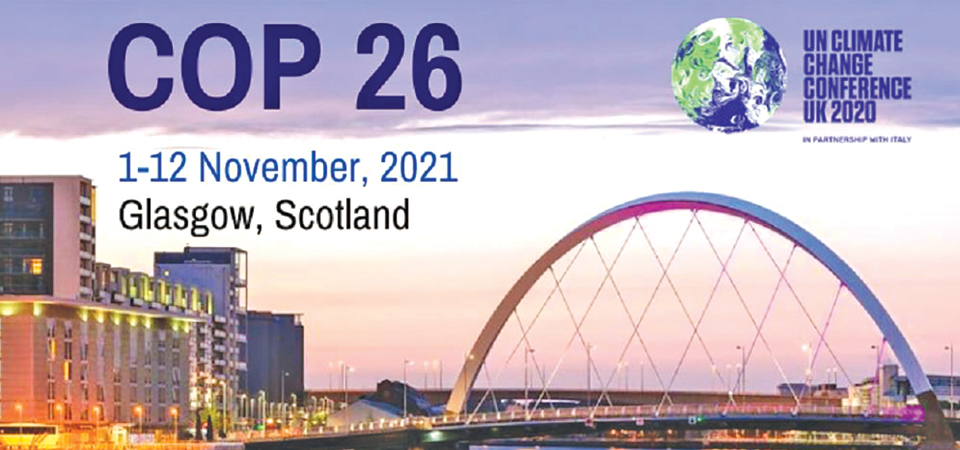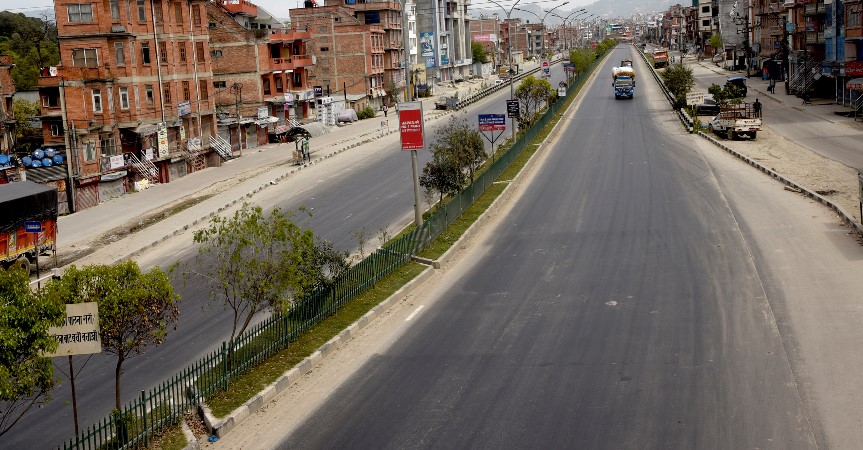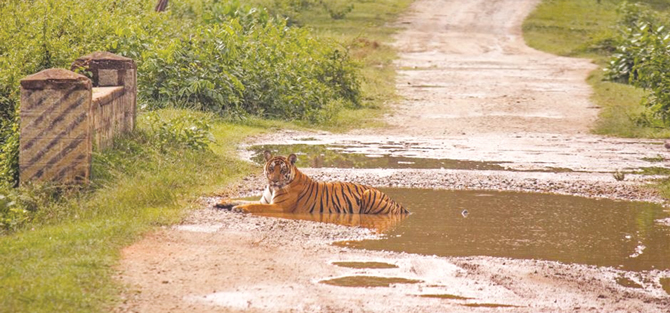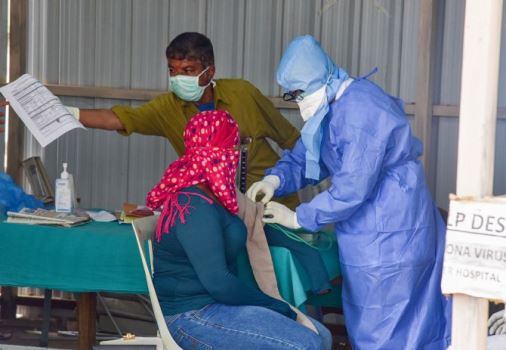Glasgow Summit fails to forge deal to meet LDCs expectations

By Indira Aryal
Kathmandu, Nov. 21: The much-awaited 26th Conference of Parties (COP26) to the
United Nations Framework Convention on Climate Change, held in Glasgow, Scotland, has drawn mixed reactions towards combating climate change.
There are signs of progress where developing world’s issues were seriously discussed and possibility of mitigation could move ahead if plans are executed to decrease already rising earth’s temperature.
Nepal’s participation in the COP26 was considered to be a success, as it was able to present the agenda of precarious mountain ecosystem. The agenda drew attention at the conference as developing countries like Nepal are facing extreme climate events such as receding glaciers and reduced snowfall, melting permafrost (ground that remains completely frozen) in the Himalayan region and extreme rainfall or drought due to rising temperatures, experts said.
Nepal presented its ambitious three-point commitment at the conference. They are – start reducing emissions from 2022 and achieve net-zero by 2045, reduce deforestation and increase forest cover to 45 per cent from 37.4 per cent by 2030 and safeguard all vulnerable people and protect them from climate change by 2030.
According to Dr. Radha Wagle, Joint Secretary and Chief of Climate Change Management Division at the Ministry of Forest and Environment, the COP26 was a success as the government was able to present its commitment to combat climate change. Now the government will work further to achieve the promise made in the conference.
Nepal has presented the Second Nationally Determined Contribution (NDC), National Adaptation Plan (NAP), Long Term Zero Carbon Emission Strategy, National Climate Change Policy and other regional policies to address the issue.
“To achieve the Zero Emission 2045, we are focusing on energy production and its active utilisation. We will replace the fossil fuel sources with clean energy, convert fuel-run vehicles to electric ones and promote electric appliances. Control of deforestation is another commitment which is very important to reduce Green House Gases (GHG) and achieve net-zero emissions by 2045,” Dr. Wagle said.
Every local government will be mobilised to achieve the results. They will have their own Adaptation Plan and will be implemented by 2030.
A large additional financial and technical assistance is required for the implementation of these commitments. Most of the budget for the implementation of national-level plans is expected from international climate finance, but only a small portion of it is projected to be mobilised from internal resources, Dr. Wagle said.
Speaking about the outcome of COP26, Manjeet Dhakal, a climate change expert, said although the achievements of the Glasgow Conference have not been as expected, many of our demands have been addressed. Advanced nations are committed to limiting global warming to 1.5° C and bearing the necessary financial obligations of developing countries.
Nepal is seen as a 'progressive' nation on climate issues. The country showed 'leadership' in COP26 rather than 'vulnerable', he added.
“Countries including Nepal demanded that financial assistance be provided for the assessment of climate-related damage, not technical ones, but no agreement was reached on financial assistance,” Dhakal said.
The biggest disagreement between developed and developing countries on the issue of loss and damage was financial accountability. Developed countries offered technical assistance, but did not want to discuss financial assistance for implementation, he said.
Glasgow's decision to reduce emissions is expected to be a positive one. The COP26 also calls for a plan to reduce emissions to 1.5 degrees by 2030, Dhakal said. To limit warming to 1.5 degrees, global net CO2 emissions must drop by 45 per cent between 2010 and 2030, and reach net-zero by around 2050.
The Glasgow Climate Pact is the first-ever climate deal to plan to reduce coal, the worst fossil fuel for greenhouse gases, which is very important to control the earth’s temperature. “Reducing temperature is very important for countries like ours because even if the temperature is kept within 1.5 degrees limit, our temperature will be over 2 degrees and that will be more in the Himalayan range. When the global temperature remains 1.5 degrees, one-third of our snow in the Himalaya will melt down. To reduce the temperature is important for us,” Dhakal said.
Issues on climate finance were not addressed as expected in COP26. In 2009, developed nations had promised to channel US$100 billion a year to developing nations by 2020 to help them adapt to climate change and mitigate further temperature rises but they are not on track.
COP26 has agreed to track whether the US$100 billion target has been met. Accordingly, it will be possible to observe whether the rich countries have fulfilled their financial obligations by 2025.
Issues of adaptation were highlighted rather than loss and damage. Adaptation assistance should have been doubled among the major demands of least developed and developing countries, including Nepal, which is at the forefront of climate risk. According to the COP agreement, the financial obligations of developed nations for adaptation will double in 2025 compared to the financial obligations they fulfilled in 2019.
Raju Pandit Chhetri, another climate change expert, said that COP26 has ended with mixed results. Developing nations have been disappointed after rich nations failed to agree on an agenda to increase financial obligations and set up a separate fund for the loss and damage. However, the agreement has raised hopes that countries are becoming more serious about limiting greenhouse gas emissions.
Recent News

Do not make expressions casting dout on election: EC
14 Apr, 2022
CM Bhatta says may New Year 2079 BS inspire positive thinking
14 Apr, 2022
Three new cases, 44 recoveries in 24 hours
14 Apr, 2022
689 climbers of 84 teams so far acquire permits for climbing various peaks this spring season
14 Apr, 2022
How the rising cost of living crisis is impacting Nepal
14 Apr, 2022
US military confirms an interstellar meteor collided with Earth
14 Apr, 2022
Valneva Covid vaccine approved for use in UK
14 Apr, 2022
Chair Prachanda highlights need of unity among Maoist, Communist forces
14 Apr, 2022
Ranbir Kapoor and Alia Bhatt: Bollywood toasts star couple on wedding
14 Apr, 2022
President Bhandari confers decorations (Photo Feature)
14 Apr, 2022









